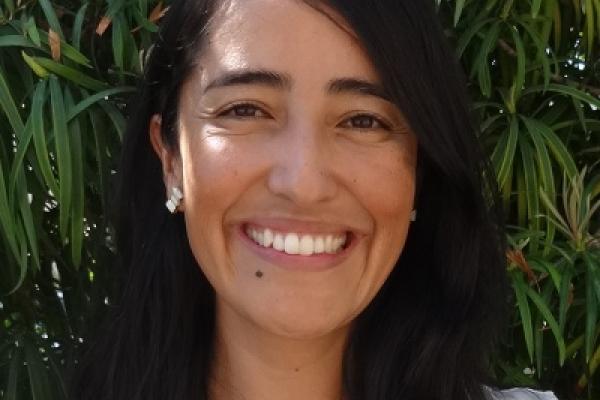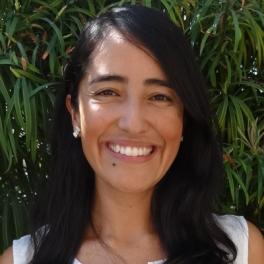
Professor Claudia Ojeda-Aristizabal
Cal State Long Beach
The competition of magnetism and topological states of matter in quantum materials probed through angle resolved photoemission spectroscopy.
Location: 1080 Physics Research Building, Smith Seminar Room
Faculty Host: Roland Kawakami

Abstract: Recent years have witnessed important discoveries of topological phases in three- and two-dimensional solid-state systems, where the strict symmetries of free space do not necessarily hold, offering access to new quasiparticles that have no counterpart in high energy physics. Similarly, the search for magnetism in two-dimensions has been a vibrant field in the condensed matter and materials science communities, as it challenged the idea of a low-dimensional long-range order being suppressed by thermal fluctuations, opening the door to a variety of spintronic technologies. In this talk, I will show photoemission experiments that provide hints to understand the coexistence of belligerent phenomena that leads to magnetism and topological phases in layered quantum materials. A recent collaboration with the Goldberger group in the frame of the recent PREM funding awarded to OSU and CSULB has led to exciting results presented in this colloquium.
Bio: Claudia Ojeda-Aristizabal is an Associate Professor at California State University Long Beach. Her research is centered on low dimensional materials where the interplay of electronic correlations, topology and crystal field effects leads to exciting ground states, probed through electronic transport devices measured and fabricated at Cal State Long Beach and angle resolved photoemission spectroscopy performed at the Advanced Light source at the Berkeley Lab. The use of these fundamentally different but complementary techniques aims towards a comprehensive understanding of the thrilling electronic structure of different quantum materials. Claudia received her BSc in Physics from Universidad de Los Andes, Bogota Colombia in 2004 before moving to Paris where she obtained a Master in Condensed Matter Physics at the Ecole Normale Supérieure in 2007 and a PhD in Experimental Condensed Matter Physics at the Université de Paris-Saclay (former Université de Paris-Sud Orsay) in 2010 under Helene Bouchiat. She had postdoctoral appointments at Michael’s Fuhrer group at the University of Maryland and Alex Zettl’s group at UC Berkeley where she learned the ARPES technique in collaboration with the Lanzara group. She became a professor at Cal State Long Beach in 2015 and her lab is grateful to be funded by the DOE since 2017. A recent collaboration with the Goldberger group in the frame of the PREM award with OSU has led to exciting results presented in this colloquium.
